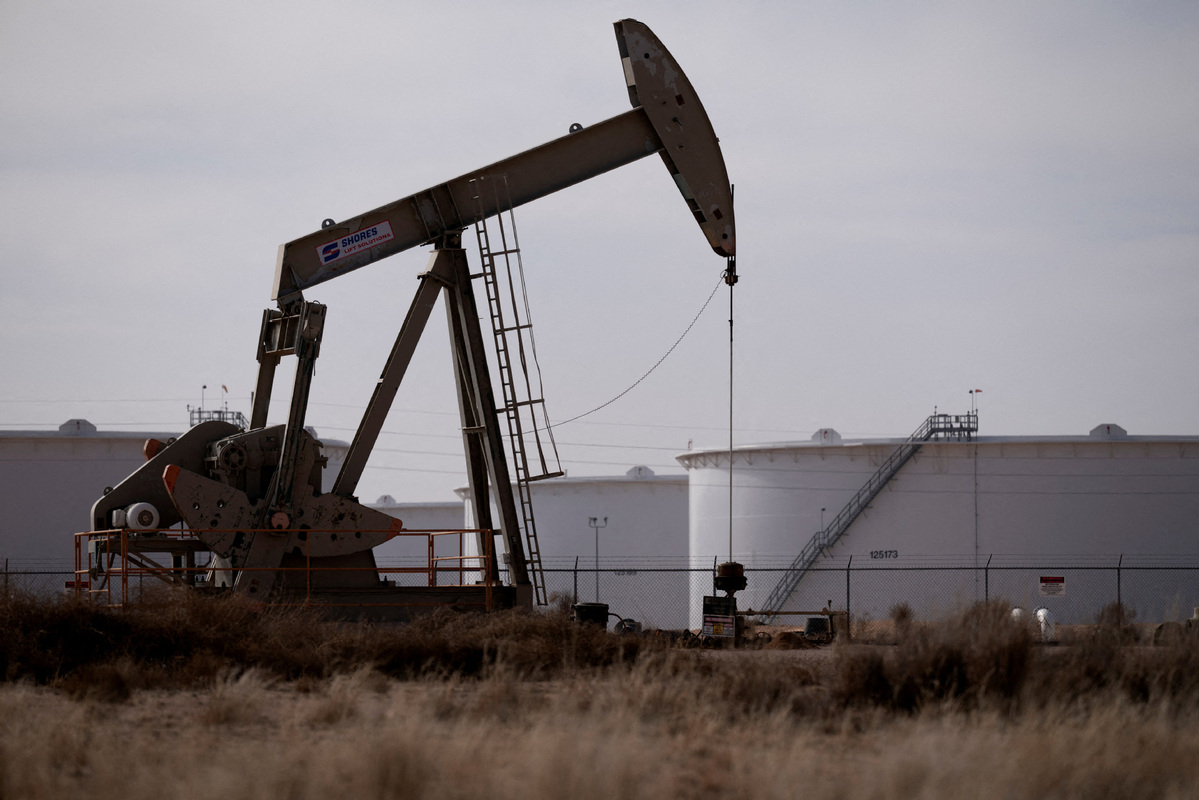Concessions defy global commitments to bring down emissions, analysts say

Energy-related concessions made by several Asian countries as part of tariff negotiations with the United States are seen to hurt the region's move to decarbonize their economies and violate the global commitments to reduce emissions, analysts said.
US President Donald Trump issued an executive order on Thursday imposing "additional ad valorem duties on goods of certain trading partners", slapping 10 to 41 percent "reciprocal tariffs" against most Asian economies as well as dozens of others.
The new duties, which will take effect from Aug 7, are lower than what Trump had earlier announced in April and July. But observers view this deal as unfair as they're still much higher than what was enforced in previous years. Moreover, trading partners had to offer many concessions — including duty-free access for US products to their domestic markets, and agreeing to purchase US energy and aircraft.
READ MORE: Trump hits dozens of countries' goods with steep tariffs
These deals have shown that climate commitments are "intricately connected" with economic policies, according to Cesar Carlito Baclagon, regional finance campaigner at 350.org, an international environmental group.
"Economic decisions actually impact the country's energy policy; economic decisions eventually, in the long term, would determine how a country will survive in the context of climate change," Baclagon said.
Indonesia, the Republic of Korea and Thailand have committed to importing oil and gas to address their respective trade imbalance with the US. Pakistan and the US will work together to develop Pakistan's "massive oil reserves", Trump said in his social media post on Wednesday.
The White House also said in a July 23 statement that there will be a "major expansion" of US energy exports to Japan and that the two sides are exploring a new offtake agreement for Alaskan liquefied natural gas.
Baclagon said that while Asian countries have been increasing clean energy generation in the past few years, Asian countries' promise to purchase US energy will slow down the global supply chain for clean energy technology and derail the region's energy transition.
Adverse impact
He said the energy deals have "a potential adverse impact" because this will raise the cost of deploying renewable energy.
Sisilia Nurmala Dewi, Indonesia team leader at 350.org, said the US-Indonesia energy deals "will deepen our dependence" on fossil fuels. This, even as Indonesian President Prabowo Subianto himself has pledged to achieve 100 percent renewable energy by 2035.
Dewi said the deal is "robbing Indonesia of the chance to shape our energy futures and harness its vast renewable energy potential".
"Indonesia has abundant renewable energy sources and the capacity to build a domestic renewable energy industry and create green jobs," she said. "We really don't need to rely on US oil and gas for our energy, transport and industrial needs."
According to the latest data by Ember, a global energy think tank, Asia's energy transition is gaining momentum, with the share of renewables in Asia's electricity mix hitting 29 percent in 2024. Ember said China and India are among the world's biggest generators of wind and solar power, while countries like Indonesia and Vietnam have targets to secure more than 40 percent of their electricity from renewables by 2030.
ALSO READ: Trump threatens substantial Indian tariff hikes, India to respond
Putra Adhiguna, Jakarta-based managing director of the independent think tank Energy Shift Institute, said it's likely that Asian economies would resort to import substitution — dropping their traditional energy sources in favor of US suppliers. This, he said, is a "reversible decision".
"What is not easy to backtrack is if some of these countries expand their fossil fuel-importing infrastructures like building a new pipeline or power plants. The short-term change in policy to import oil and gas from the US is reversible. But don't start overexpanding your fossil fuel because that may be a losing bet for the next 20 years," Adhiguna said.
For Adhiguna, the US withdrawal from the Paris Agreement will further weigh on Asia's energy transition.
Asian countries may say, if the US doesn't decarbonize, we're not going to decarbonize, he noted.
Contact the writer at prime@chinadailyapac.com


